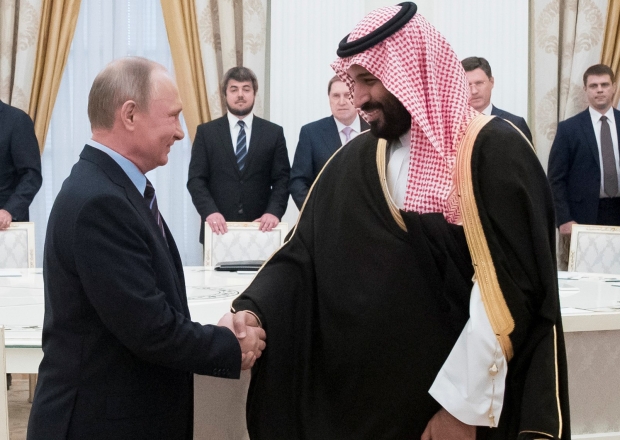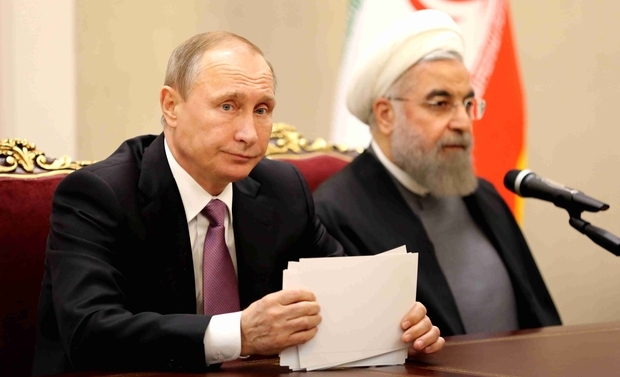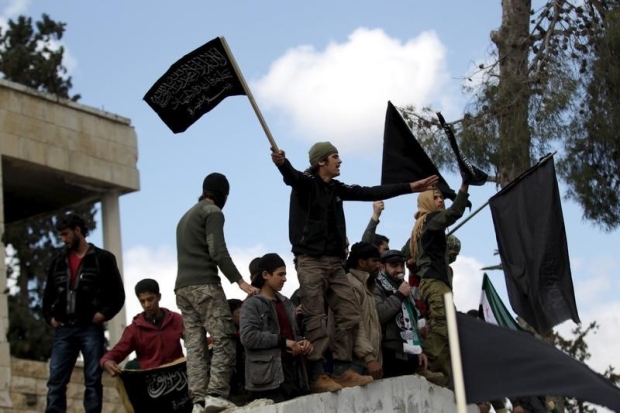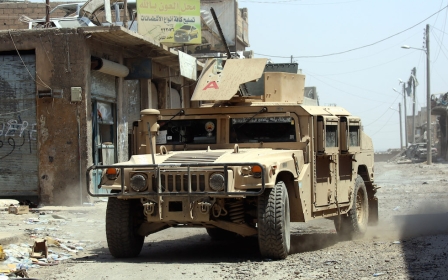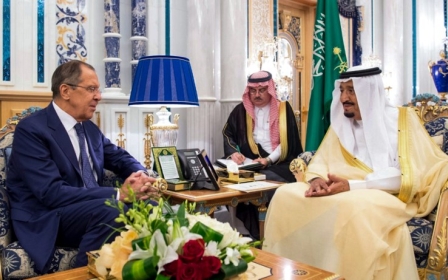King Salman in Moscow: Could Russia and Saudi Arabia form an unlikely alliance?
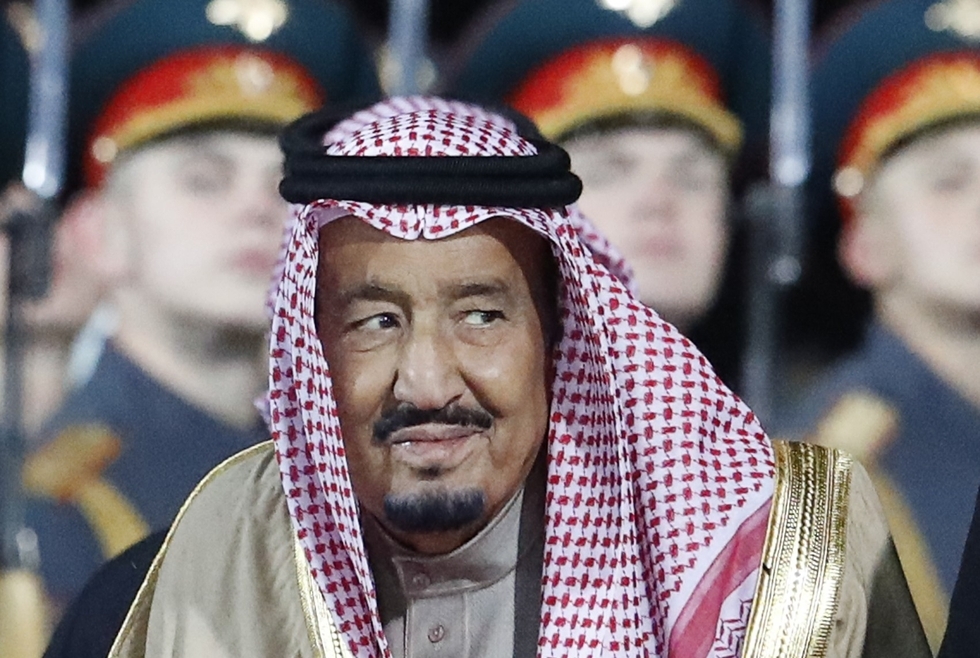
At last, Saudi Arabia’s King Salman bin Abdul Aziz al-Saud is in Moscow in the first ever visit by a Saudi monarch. The visit was described by Sergei Lavrov, Russian foreign minister, as "a real turning point in relations between the two countries".
It took two years for the official visit, that was first mentioned in 2015 during a conversation between Russian President Valdimir Putin and the then Crown Prince Mohammed bin Salman, to finally happen. Due to the opposing views both countries held on key Middle Eastern issues - Syria, Yemen and Iran, the expected visit was postponed several times.
Russian leadership is convinced that Saudi money and ideological support played a huge role in triggering jihadist movements in Chechnya
Perhaps, this is precisely why one of the key goals of the visit, according to a former Russian ambassador to Saudi Arabia, is "to bring our positions closer and agree on how both countries should act in the crises that still exist in the Middle East". Not an easy undertaking given the history of the relations between the two countries.
Rocky relations
Undoubtedly, Russia and Saudi Arabia have a history of rocky relations that have developed in cycles. The USSR was the first to recognise the Saudi Kingdom as a country and to establish diplomatic relations in 1926. However, in 1938 the Soviet diplomatic mission in Jeddah was closed due to the changed priorities of both countries at the time.
Throughout the Cold War period Riyadh supported the US in its anti-Soviet and anti-socialist conquest. Decades later, in 1991, relations were restored and the Russian embassy was opened in Riyadh.
The Chechen wars in the Russian North Caucasus that broke out in 1994 led to a crisis in the Russia-Saudi relations. Moscow viewed the birth of a separatist movement in Chechnya - and especially its quick transformation into Islamism - as sparked by external powers, namely Saudi Arabia.
Russian leadership became convinced that the Saudi funding and ideological support played a prominent role in inflaming separatist movements in Chechnya and spreading Wahhabi ideology which is not the version of Islam adhered to by the Russian Muslim population.
The 2000s could be described as a period of "détente" in Moscow-Riyadh relations where the two countries managed to overcome the irritant Chechen factor in their relations and move forward. The diplomatic ties reached a climax in February 2007 when Putin visited Riyadh, paving the ground for future cooperation in the economic sphere, especially in the energy sector.
In 2011, the wave of popular protests that swept across the Arab world and came to be known as the Arab Spring put the two states in opposing camps. Moscow viewed the "Arab Spring" as a catalyst for instability and chaos in the Middle East. It perceived such popular uprisings as a continuation of the "Coloured revolutions" in the Russia's post-Soviet space planned by the West.
Undoubtedly, Russia and Saudi Arabia have a history of rocky relations that have developed in cycles
Riyadh’s role was seen as a major sponsor for the opposition and armed groups in Syria and Libya – Russia’s major Arab allies back then. As a result, since 2011 relations between the two states were soured by their opposite stances on the Syrian crisis and Moscow-Tehran partnership. Only in 2015 did relations start to normalise and develop due to several factors: the Iran nuclear deal, the fall of oil prices and Russia’s military deployment in Syria in September of that year.
Last May, Mohammed Bin Salman, at the time deputy crown prince, visited Moscow and was quoted by Russia’s state-run Tass news agency as describing the relations between Russia and Saudi Arabia as "seeing one of their best stages at the moment".
Changing regional order
Throughout the second part of the 20th century, the Middle East security order was centered around three major Arab states: Egypt, Iraq, Syria - and traditional non-Arab actors: Iran, Turkey and Israel.
Additionally, that regional security architecture was based on three major pillars: the lack of unity among the Arab states, the balancing partnerships between them and non-Arab regional actors and the involvement of global powers in the region supporting different actors.
This order, however, began to be dismantled mainly after the US invasion and subsequent occupation of Iraq in 2003, and later in 2011 during the outbreak of a wave of popular protests in Egypt and Syria. With the decline of the above-mentioned traditional Arab powers, Saudi Arabia emerged as a new power broker in the region. The new regional order made Riyadh the most influential Arab actor and significantly increased its role in Middle Eastern affairs going beyond its traditional domains.
Riyadh is now involved in Syrian conflict financing various militant groups. It also confronts Iran trying to limit its rising influence in the region. Additionally, the kingdom initiated a war in Yemen against the Houthi rebels in March 2015, but it remains unable to win that war. Saudi Arabia is also a key financial donor to the Egyptian regime that could not have survived without Gulf money. Moscow acknowledges Riyadh's leading role in the region.
Unreliable partner
Importantly, Russia-Saudi rapprochement coincided with - and was primarily driven by - the rift in US-Saudi relations. Under former US President Barack Obama’s administration, one of the top US priorities was to reach a deal with Iran on its nuclear programme and limit the US involvement in the Middle East. Naturally, this policy raised concerns among Saudis about Washington’s security guarantees.
The nuclear deal came to fruition in 2015. The Saudis viewed it as a betrayal because they felt their security interests were compromised as Washington aimed for rapprochement with Tehran, its regional arch-rival.
During the first months of the Arab uprisings, Riyadh saw how Washington did nothing to save its long-time allies in the region, namely the Egyptian president, Hosni Mubarak, and the Tunisian president, Zine el-Abidine Ben Ali
Moreover, the Obama administration raised concerns over the Kingdom’s human rights record and its military campaign in Yemen. Also, during the first months of the Arab uprisings, Riyadh saw how Washington did nothing to save its long-time allies in the region namely the Egyptian president, Hosni Mubarak, and the Tunisian president, Zine el-Abidine Ben Ali. The Saudis began to cast doubt on US commitments as an ally and decided to diversify their partnerships portfolio. Since then a gradual improve in Russia-Saudi ties could be observed.
Energy deal
The energy sector is yet another important factor that is a key driving force behind cooperation between the two countries, particularly after the drop in oil prices that took place by the end of 2014. Being among major crude oil producers (jointly make almost 25 percent of global oil output), Russia and Saudi Arabia suffered from the fall of oil prices. However, the crisis brought them closer resulting in a deal to cut output and stabilise oil prices. Since then the two states are in constant contact on this matter.
Russia has its own Muslim population of 20 million which makes it the European country with the largest Muslim minority
Russia’s economic woes, partly caused by Western sanctions, forced Moscow to search for alternative sources of foreign investments elsewhere. In such a context, developing closer economic ties with cash-rich GCC states has become a priority to Russia. In June 2015, during talks between Mohammed bin Salman and Putin, Saudi Arabia pledged to invest up to $10bn in Russia’s economy, a move that Moscow appreciated a great deal at the time.
Additionally, the Saudis expressed genuine interest in Russia’s nuclear technologies, in developing joint infrastructural and economic projects as well as military technical cooperation. However, hardly any cooperation in these fields has materialised, except for the Russia-Saudi deal to decrease oil output together with other OPEC member states.
Another important factor which comes into play is religion and the Saudi influence in this sphere. Russia has its own Muslim population of 20 million which makes it the European country with the largest Muslim minority and a part of the Muslim world. There are also about 10 million Muslim migrants who reside in Russia legally and illegally.
Moscow can’t, therefore, ignore the relations that can and have developed between Muslims of Russia and the Middle East. It already had a disastrous experience during the volatile Chechen wars in the 1990s and early 2000s.
The Russian leadership is convinced that Saudi money and ideological support played a huge role in triggering the separatist movements in Chechnya. This is why Moscow seeks to pursue warm relations with Riyadh to closely monitor the activity of its charity funds in Russian Muslim republics in the Volga region and North Caucasus.
Differences and risks
Almost all the factors that drive Russia’s interest in developing constructive ties with Saudi Arabia are surrounded by numerous obstacles. Russia’s close relationship with Iran is one of the major irritants in Moscow-Riyadh ties. It goes further into another irritant – Russia’s military presence in Syria and its backing of Syrian President Bashar al-Assad’s regime together with Tehran.
Russia’s military involvement in the war in Syria changed the tide against the Saudi-backed armed groups who suffered huge losses and ultimately minimised Riyadh’s chances to get the return of its investments in Syria.
In the end, Saudi Arabia is a key Arab ally of the US in the Middle East. This alliance prevents Moscow and Riyadh from developing their ties at the expense of the US interests
The fact that the balance of power in Syria tilts in favour of Iran represents a major issue for the kingdom. However, by developing ties with Russia, Riyadh aims at convincing Moscow to keep Tehran’s regional policy in check.
Another potential obstacle is the unpredictable policies pursued by the US President Donald Trump in the region. Such policies impact Russian-Saudi ties. If Trump decided to get involved more in the Middle East, it might put certain limits for further development of ties between the two countries, but if he opted to continue with Obama’s policy of gradual retreat from the region, then Russia-Saudi relations are likely to continue developing.
King Salman's visit comes at a time when Russia-Saudi relation have reached a glass ceiling. In order to continue to grow, the two countries will have to make a qualitative breakthrough which will demonstrate a real basis for further cooperation. So far, it seems that both countries are not ready for such a leap.
In the end, Saudi Arabia is a key Arab ally of the US in the Middle East. This alliance prevents Moscow and Riyadh from developing their ties at the expense of US interests.
- Alexey Khlebnikov is a MENA expert at the Russian International Affairs Council. He holds an MA in global public policy and Middle Eastern studies. He was a Muskie fellow at the University of Minnesota Hubert Humphrey School of Public Affairs (2012-2014) and a research fellow at Johns Hopkins SAIS in 2013.
The views expressed in this article belong to the author and do not necessarily reflect the editorial policy of Middle East Eye.
Photo: Saudi Arabia's King Salman walks past Russian honour guards during a welcoming ceremony upon his arrival at Vnukovo airport outside Moscow, Russia 4 October 2017 (Reuters)
New MEE newsletter: Jerusalem Dispatch
Sign up to get the latest insights and analysis on Israel-Palestine, alongside Turkey Unpacked and other MEE newsletters
Middle East Eye delivers independent and unrivalled coverage and analysis of the Middle East, North Africa and beyond. To learn more about republishing this content and the associated fees, please fill out this form. More about MEE can be found here.



